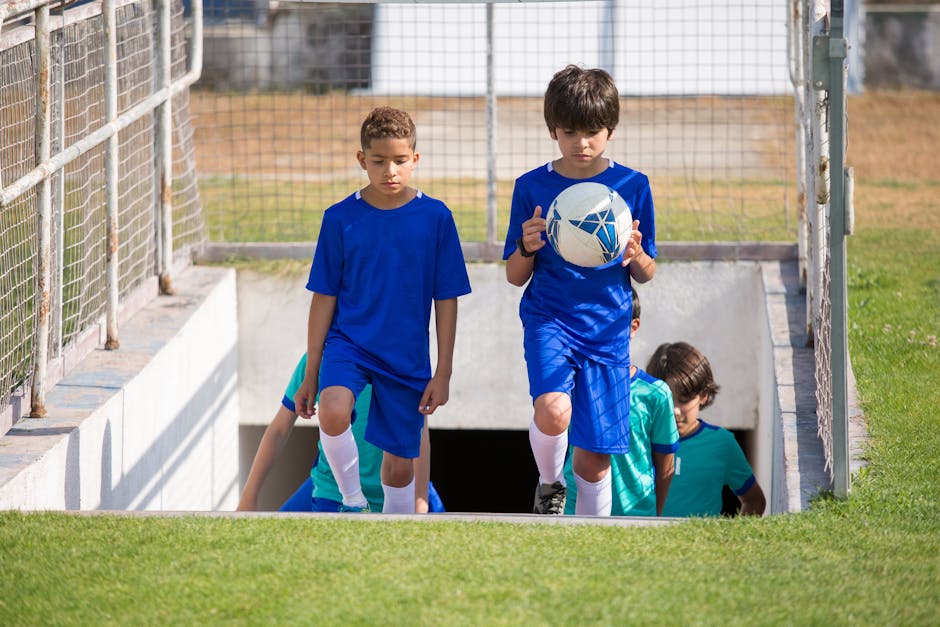Football in Manchester: A Look at the Junior Leagues
Manchester is not just home to two of the Premier League’s most famous clubs, Manchester United and Manchester City, but it is also a vibrant hub for budding football talent at the grassroots level. The junior football leagues in Manchester play a pivotal role in nurturing young talent and promoting the sport among the youth. This blog post offers an in-depth look at these junior leagues, their structure, significance, and how they contribute to the football culture in Manchester.
The Structure of Junior Football Leagues in Manchester
The junior football leagues in Manchester are a well-organized network that caters to young players from under-7 to under-18 age groups. These leagues are divided into several divisions based on age and skill level, providing a structured pathway for young players to develop their skills.
Age Groups and Divisions
The leagues are generally categorized by age groups such as under-9, under-11, under-13, and so on. Each age group is further divided into multiple divisions to accommodate varying skill levels. For instance, the Manchester Junior Football League (MJFL) and the East Manchester Junior Football League (EMJFL) are two prominent leagues that operate in this fashion, offering competitive play for thousands of young athletes each season.
League Format
The league format typically involves a series of matches played over the course of a season, culminating in playoffs or a championship game. The leagues also emphasize fair play and sportsmanship, instilling valuable life lessons in young players. Regular training sessions, workshops, and camps are organized to enhance the skills of these budding footballers.
The Significance of Junior Leagues in Manchester
The junior leagues are crucial for the development of young players, providing them with the opportunity to hone their skills, experience competitive play, and gain exposure to scouts from professional clubs. Many players who start in these leagues go on to join the academies of top clubs like Manchester United and Manchester City.
Talent Development
Junior leagues are instrumental in identifying and grooming young talent. Clubs like FC United of Manchester and Curzon Ashton invest heavily in their youth programs, ensuring that talented players receive the necessary training and guidance to excel. In fact, statistics show that approximately 15% of players in professional academies have their roots in local junior leagues.
Community Engagement
These leagues also play a significant role in community engagement, bringing together families, local businesses, and schools to support youth football. They organize community events, fundraisers, and volunteer opportunities, fostering a sense of camaraderie and local pride. Such initiatives not only promote the sport but also contribute to the overall well-being of the community.
Challenges Faced by Junior Leagues
Despite their importance, junior leagues face several challenges that can impact their effectiveness and sustainability. From funding issues to a shortage of qualified coaches, these challenges require attention and action from stakeholders at all levels.
Financial Constraints
One of the primary challenges is securing adequate funding. Many junior leagues rely on registration fees, sponsorships, and donations to cover expenses such as equipment, facilities, and travel. However, fluctuating economic conditions can affect these revenue streams, making it difficult to sustain operations.
Need for Qualified Coaches
The shortage of qualified coaches is another hurdle that junior leagues face. Effective coaching is vital for player development, yet many leagues struggle to find coaches with the right skills and experience. Efforts are being made to address this issue through coach training programs and partnerships with educational institutions.
Actionable Tips for Parents and Guardians
Parents and guardians play a crucial role in the development of young athletes. Here are some tips to help support your child’s football journey:
- Encourage Regular Practice: Encourage your child to practice regularly, both during organized sessions and at home. Consistent practice is key to skill development.
- Promote a Healthy Lifestyle: Ensure that your child follows a balanced diet and gets ample rest. A healthy lifestyle is essential for optimal performance on the pitch.
- Support Their Passion: Attend matches, cheer them on, and show interest in their progress. Your support can boost their confidence and motivation.
- Focus on Enjoyment: While competition is important, it’s also crucial to ensure that your child enjoys playing football. A positive experience will foster a lifelong love for the sport.
Conclusion
The junior football leagues in Manchester are an integral part of the city’s rich football culture. They provide young players with the opportunity to develop their skills, engage with their community, and potentially pursue a career in professional football. Despite facing challenges, these leagues continue to thrive, thanks to the dedication of coaches, parents, and volunteers. By supporting the junior leagues, we can ensure that Manchester remains a beacon of football excellence for generations to come.
For more information on how to get involved or support junior football in Manchester, visit the official pages of the Manchester Junior Football League and East Manchester Junior Football League.





